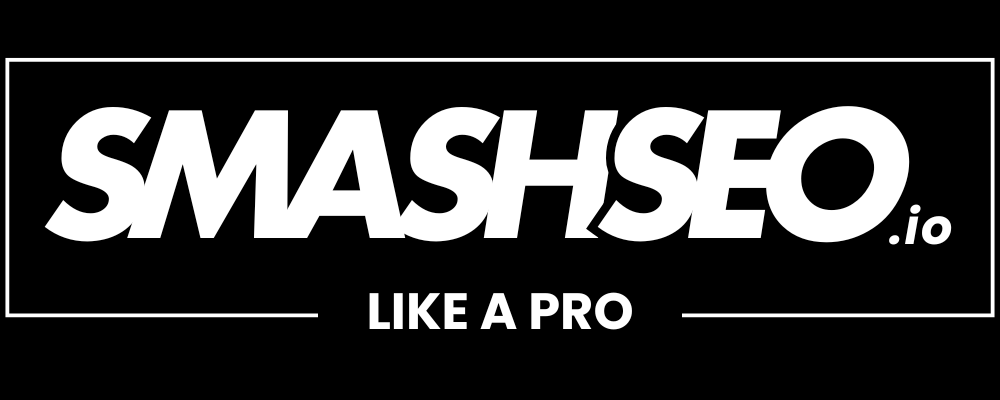What is SEO? A Comprehensive Guide to Search Engine Optimisation
In today’s digital landscape, having a strong online presence is essential for businesses of all sizes. At the heart of this digital visibility lies Search Engine Optimisation, commonly known as SEO. But what exactly is SEO, and why has it become such a critical component of modern marketing strategies? As technology founders and startups navigate the complex world of digital marketing, understanding SEO fundamentals can make the difference between online obscurity and sustainable growth.
Understanding SEO: The Foundation of Digital Visibility
Search Engine Optimisation (SEO) refers to the practice of enhancing a website’s visibility in search engine results pages (SERPs). When implemented effectively, SEO helps your website rank higher in organic (non-paid) search results, driving more qualified traffic to your digital doorstep. Unlike paid advertising, which stops generating leads the moment you stop paying, SEO creates a sustainable foundation for long-term online visibility and business growth.
For technology founders and startups, SEO represents a particularly valuable opportunity. With limited marketing budgets and fierce competition, organic search visibility offers a cost-effective way to connect with potential customers actively searching for solutions you provide. According to BrightEdge research, organic search drives 53% of all website traffic, making it the single largest channel for most businesses online.
The Evolution of SEO: From Keyword Stuffing to User Experience
The history of SEO is a fascinating journey that mirrors the evolution of the internet itself. When search engines first emerged in the mid-1990s, their algorithms were relatively simple, primarily focusing on keywords found within a webpage’s content and meta tags. This led to questionable practices like keyword stuffing – cramming as many keywords as possible into content, often at the expense of readability.
As search engines grew more sophisticated, so did SEO practices. Google’s introduction of PageRank in 1998 revolutionised search by considering not just keywords, but also the quality and quantity of links pointing to a website as indicators of its authority and relevance. This marked a significant shift toward quality over mere keyword density.
Today, modern SEO encompasses a complex array of factors, including:
- Technical SEO: Ensuring your website is structured in a way that search engines can efficiently crawl and index
- On-page SEO: Optimising individual pages with relevant keywords, meta descriptions, and quality content
- Off-page SEO: Building authority through backlinks and mentions from other reputable websites
- User experience: Creating websites that load quickly, work well on mobile devices, and provide valuable information
For startups and technology founders, this evolution presents both challenges and opportunities. While SEO has become more complex, it has also become more aligned with creating genuinely valuable user experiences – something that innovative startups are often well-positioned to deliver.
Why SEO Matters for Technology Startups
As a technology founder, you’re likely focused intensely on product development, often at the expense of marketing considerations. This is entirely understandable – your product is your passion. However, even the most revolutionary technology solution needs visibility to gain traction in the marketplace.
SEO offers several specific advantages that align perfectly with the needs and constraints of technology startups:
Cost-Effectiveness: Compared to paid advertising channels, SEO typically delivers a higher return on investment over time. While it requires an upfront investment of time and resources, the long-term benefits can significantly outweigh the costs. For budget-conscious startups, this sustainable approach to marketing can be particularly valuable.
Credibility Building: Ranking well in search results signals credibility to potential customers. According to Search Engine Journal, 70% of consumers consider Google a trusted source of information. When your startup appears prominently in search results, it borrows some of that inherent trust.
Targeted Traffic: Unlike broader marketing approaches, SEO connects you with users actively searching for solutions in your space. This targeted approach means visitors arriving through organic search are often further along in the buying journey and more likely to convert.
Common SEO Challenges for Startups
Despite its benefits, many technology startups struggle with implementing effective SEO strategies. Based on our experience working with founders, we’ve identified several common challenges:
Limited Resources: Startups typically operate with lean teams focused primarily on product development. Finding the time and expertise to develop and implement a comprehensive SEO strategy can be difficult when resources are stretched thin.
Technical Complexity: Modern SEO requires a blend of technical knowledge, content creation skills, and strategic thinking. Few startups have all these capabilities in-house, especially in their early stages.
Competitive Landscapes: Many technology sectors face intense competition for valuable keywords, making it challenging for newcomers to gain visibility without a sophisticated approach.
Long-Term Perspective: SEO typically doesn’t deliver overnight results, requiring a sustained commitment that can be challenging for startups focused on immediate growth metrics.
How AI is Transforming SEO for Startups
The good news for technology founders is that recent advances in artificial intelligence are democratising access to effective SEO strategies. AI-powered tools are making it possible for startups to compete with larger competitors by automating complex aspects of SEO and content creation.
Our platform, SmashSEO.io, exemplifies this trend by combining the power of SEO expertise with AI content generation. This combination addresses one of the most significant challenges startups face: creating sufficient quantities of high-quality, optimised content to drive organic growth.
By leveraging AI, startups can now:
- Generate SEO-optimised content at scale without hiring large content teams
- Identify valuable keyword opportunities with less manual research
- Create consistent content even with limited internal resources
- Compete more effectively with established players in their space
This technology-driven approach to SEO aligns perfectly with the innovative mindset of technology founders, allowing them to apply the same efficiency-focused thinking to their marketing that they bring to product development.
Getting Started with SEO for Your Startup
If you’re a technology founder looking to improve your SEO approach, consider these foundational steps:
1. Conduct a keyword analysis focused on terms your potential customers are searching for. Look beyond obvious high-competition terms to find valuable niche opportunities.
2. Audit your existing website for technical SEO issues that might be limiting your visibility. Common problems include slow page speeds, poor mobile optimisation, and crawlability issues.
3. Develop a content strategy that addresses both search engine requirements and the information needs of your target audience. The most effective SEO content solves problems for real users.
4. Consider leveraging AI tools like SmashSEO.io to scale your content production while maintaining quality and optimisation standards.
5. Build a measurement framework to track your SEO progress over time, focusing on metrics like organic traffic, keyword rankings, and ultimately, conversions from organic search.
The Future of SEO for Technology Startups
As we look ahead, several emerging trends will shape how technology startups approach SEO:
Voice Search Optimisation: With the growing prevalence of voice assistants, optimising for conversational queries will become increasingly important.
AI-Generated Content: As AI content generation tools improve, the focus will shift from simply creating content to ensuring it provides unique value and insights.
User Experience Signals: Search engines are placing greater emphasis on user experience metrics, making technical performance and engagement crucial ranking factors.
For technology founders, staying ahead of these trends while focusing on core product development represents a significant challenge – but also an opportunity to gain competitive advantage through strategic use of tools and expertise.
Conclusion: SEO as a Growth Catalyst for Technology Startups
Search Engine Optimisation has evolved from a technical niche practice to a fundamental component of business growth strategy. For technology startups operating with limited resources and ambitious growth targets, effective SEO represents a particularly valuable opportunity to build sustainable visibility and customer acquisition.
By understanding the fundamentals of SEO and leveraging emerging AI tools like SmashSEO.io, technology founders can overcome common resource constraints and compete effectively with larger, more established competitors.
Ready to transform your startup’s approach to SEO? Register your interest in SmashSEO.io today and discover how our AI-powered platform can help you generate SEO-optimised content at scale, driving sustainable organic growth for your technology business.
Frequently Asked Questions
How long does it take to see results from SEO efforts?
SEO is typically a medium to long-term strategy. While some improvements might be visible within weeks (especially from technical fixes), meaningful results usually take 3-6 months to materialise. This timeline varies based on your industry’s competitiveness, your website’s current authority, and the quality of your SEO implementation. For technology startups, it’s important to view SEO as a sustained investment rather than a quick fix, complementing faster-acting channels like paid advertising in your overall marketing mix.
Is SEO still relevant with the rise of social media and other marketing channels?
Absolutely. While social media and other channels are important components of a comprehensive marketing strategy, SEO remains crucial because it captures intent-driven traffic. Users actively searching for solutions are typically further along in their buyer’s journey than those encountering your brand on social platforms. According to Backlinko, Google processes over 8.5 billion searches per day, representing an enormous opportunity to connect with potential customers at the exact moment they’re looking for solutions like yours.
How can a small startup compete with established companies for SEO rankings?
Small startups can compete effectively by taking a targeted approach rather than trying to rank for highly competitive terms immediately. Focus on long-tail keywords (more specific, longer phrases) that larger competitors might overlook, create content that addresses specific niche problems in your industry, and leverage local SEO if applicable. Additionally, tools like SmashSEO.io can help level the playing field by enabling startups to produce high-quality, optimised content at scale without the large content teams that bigger companies employ. With consistent effort and strategic focus, startups can gradually build authority and expand to more competitive terms over time.



